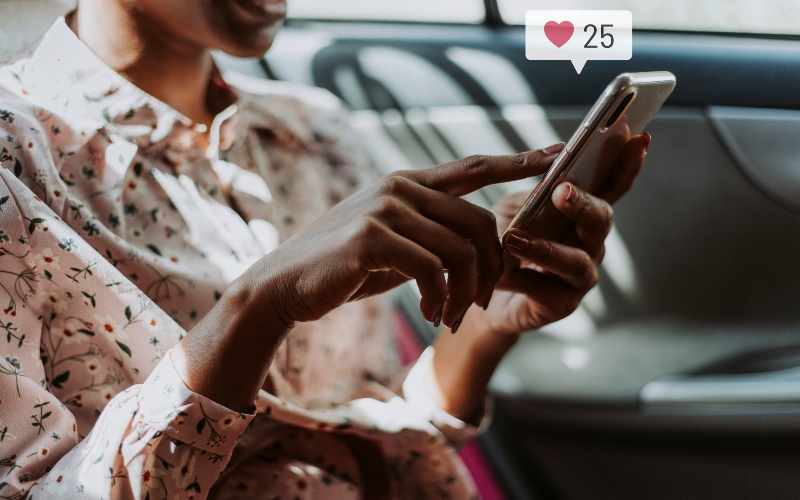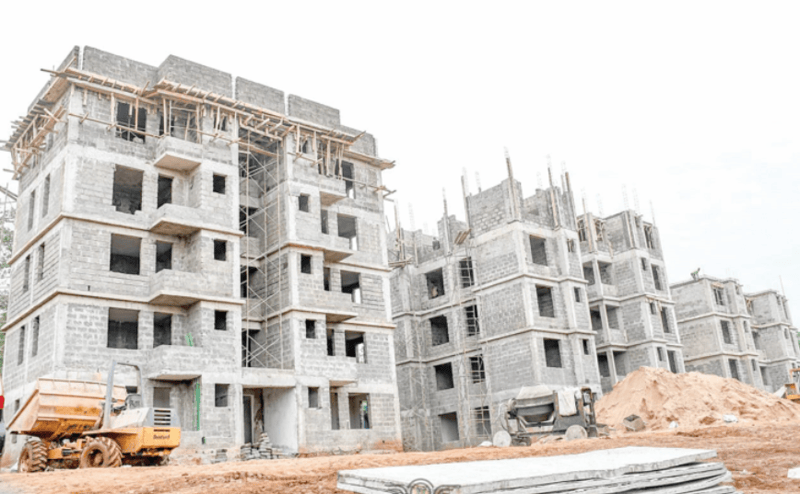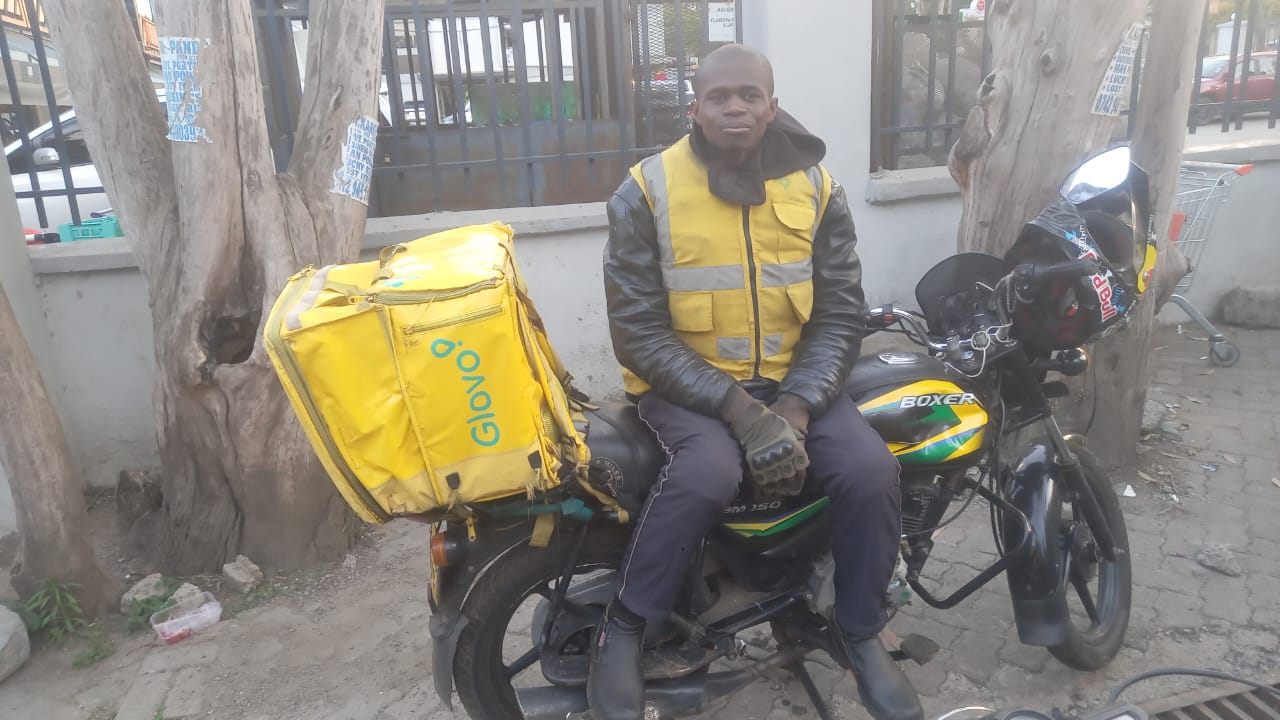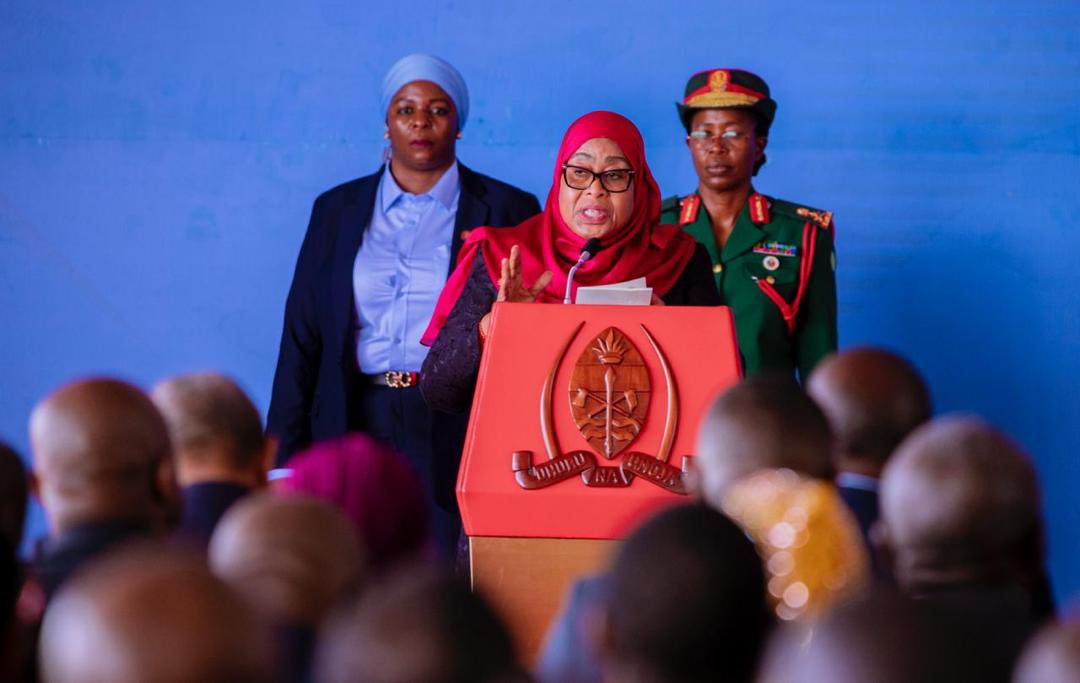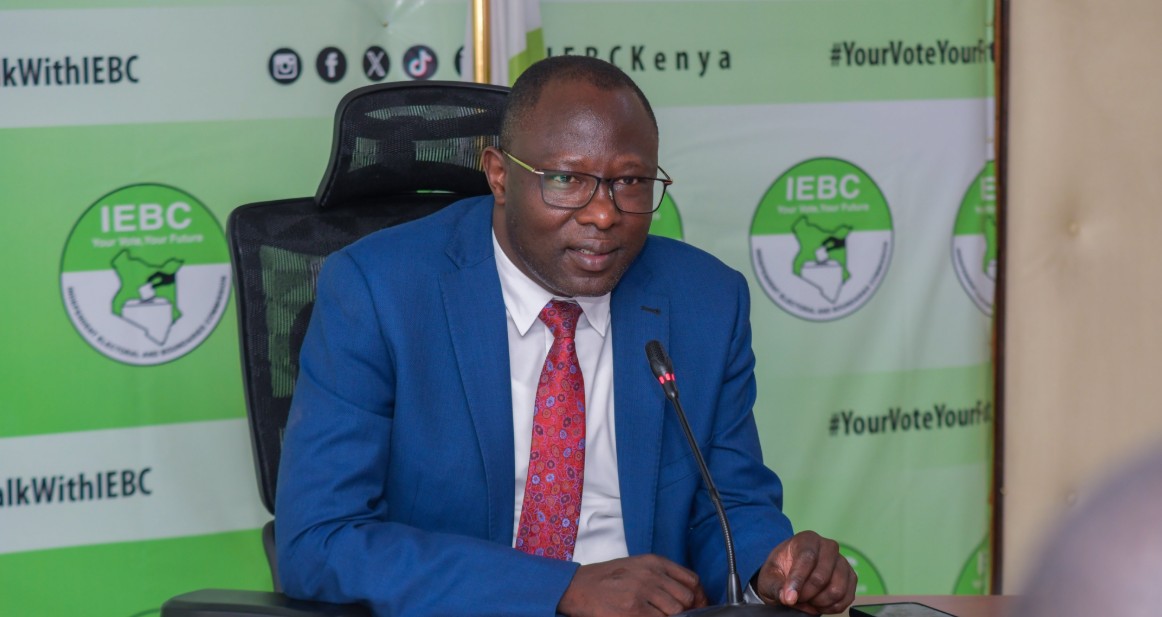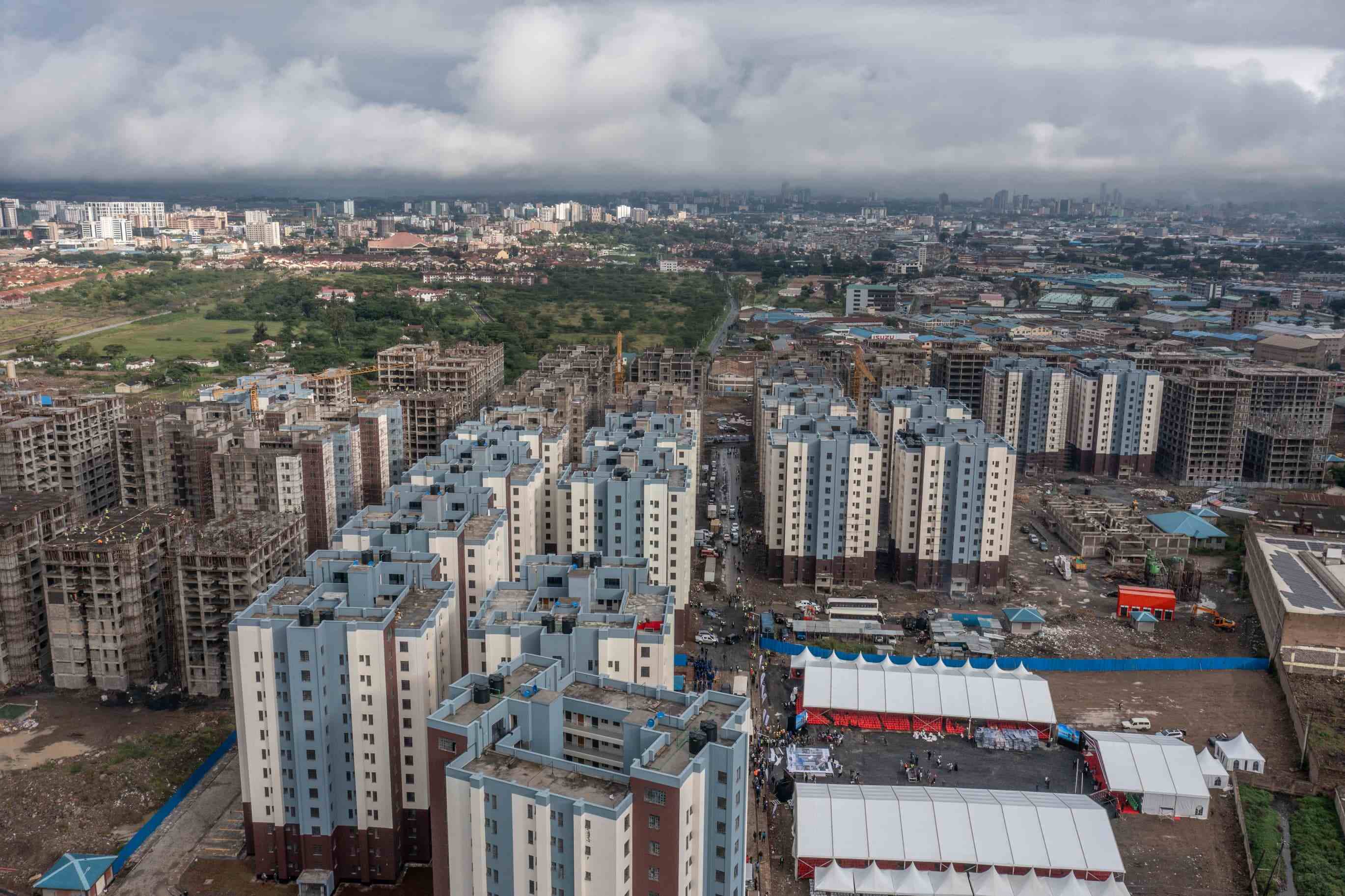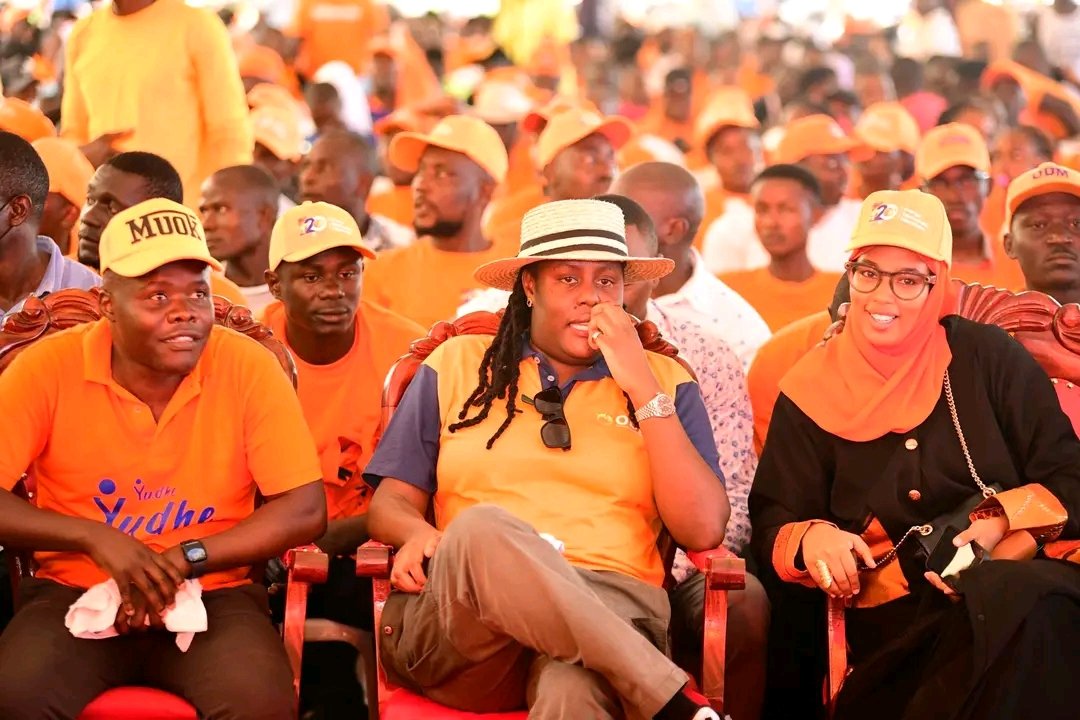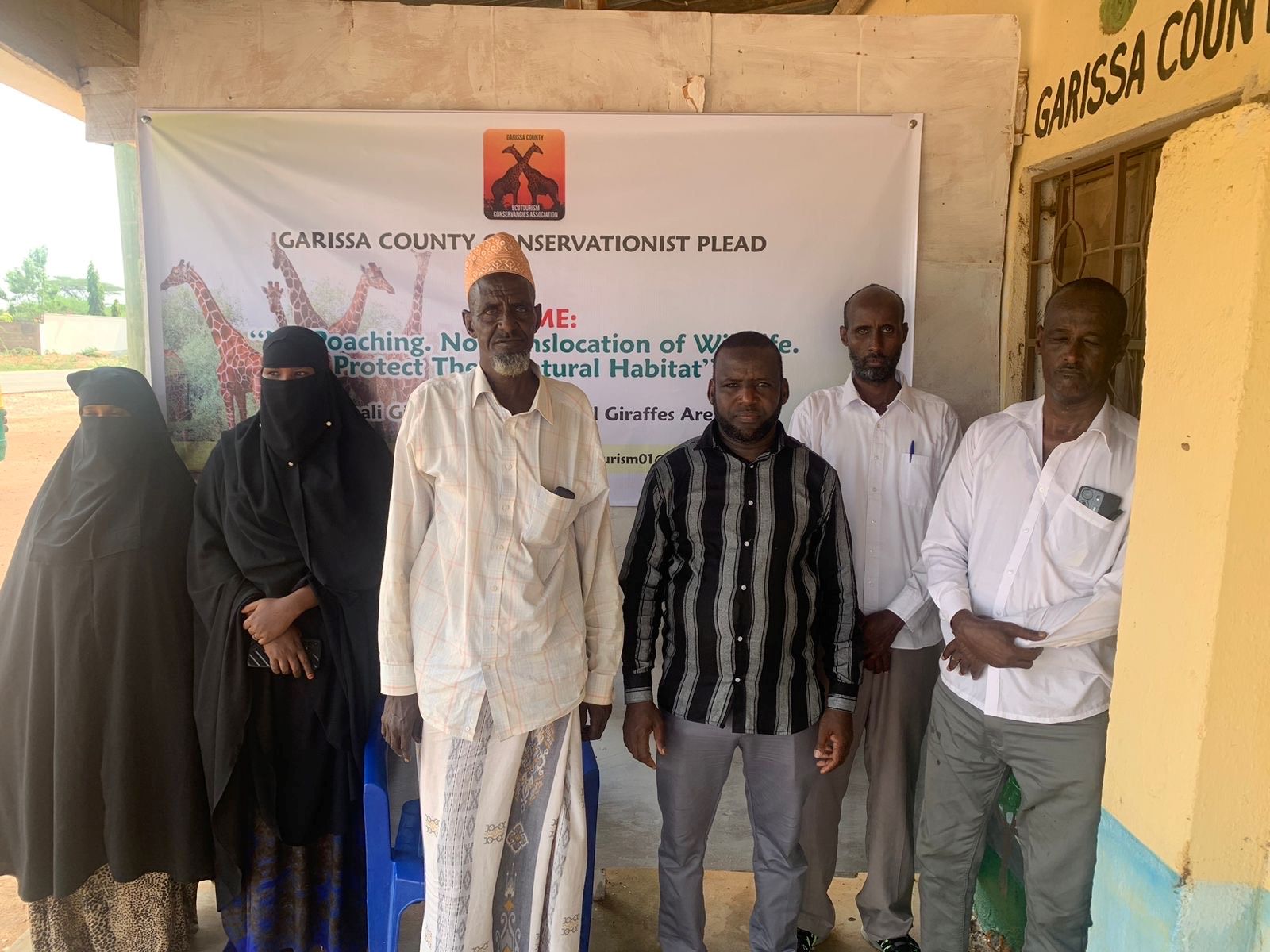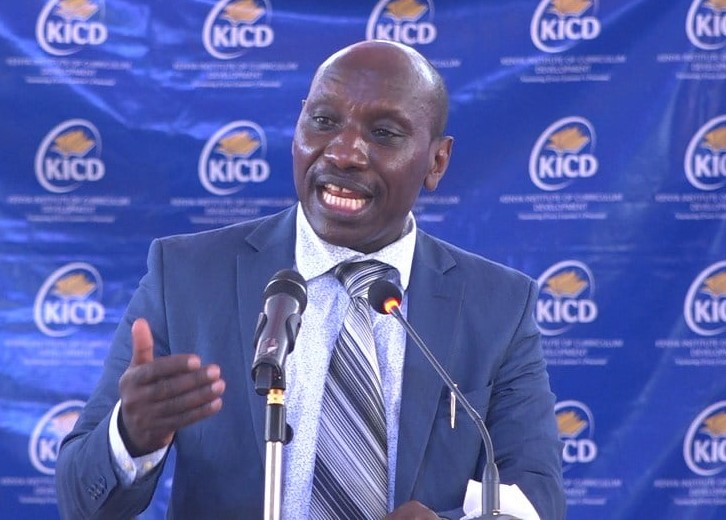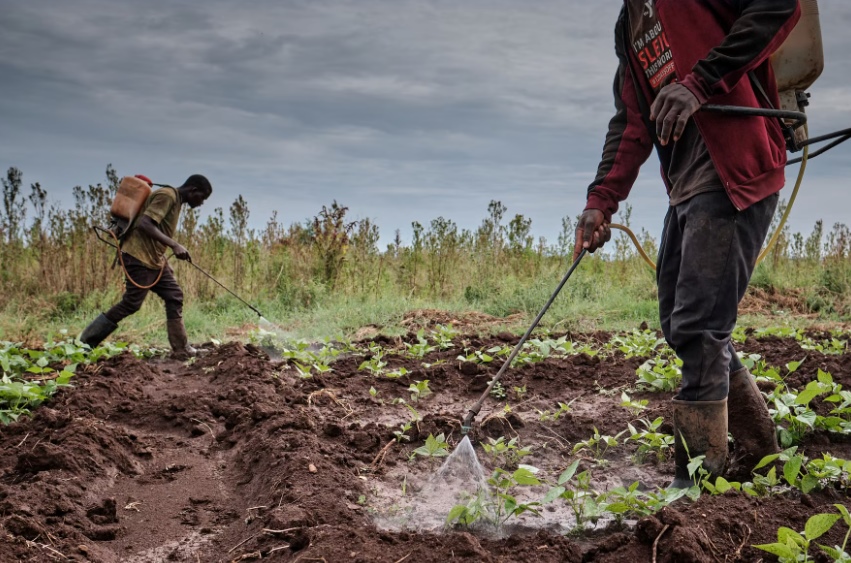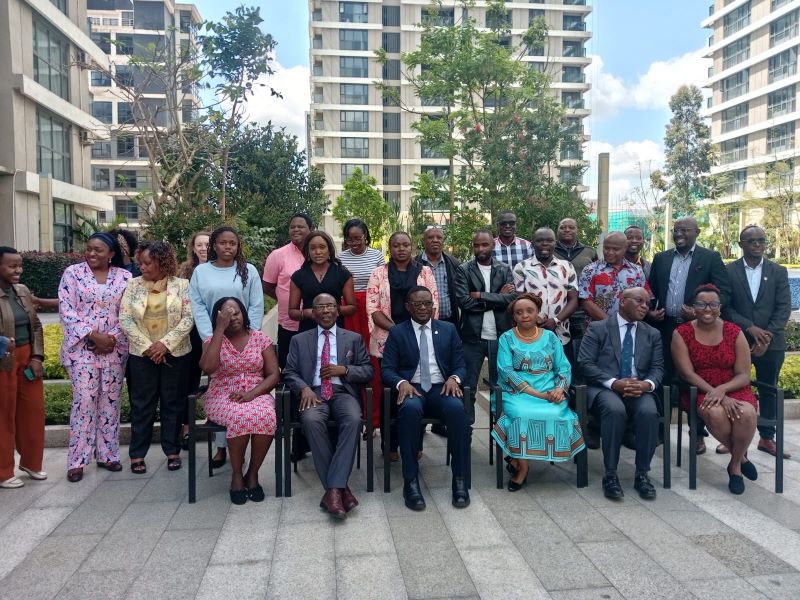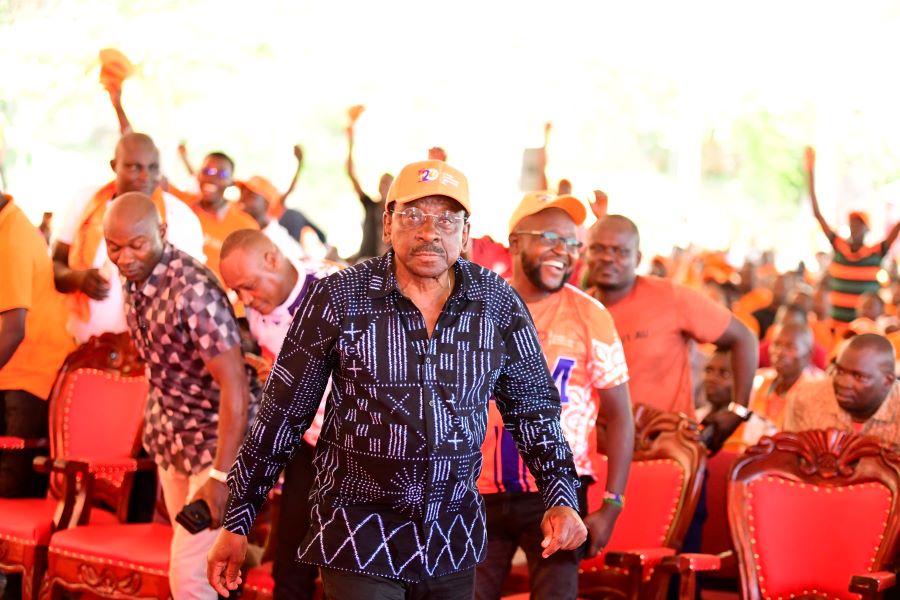The ongoing Nakba: A call for justice and accountability
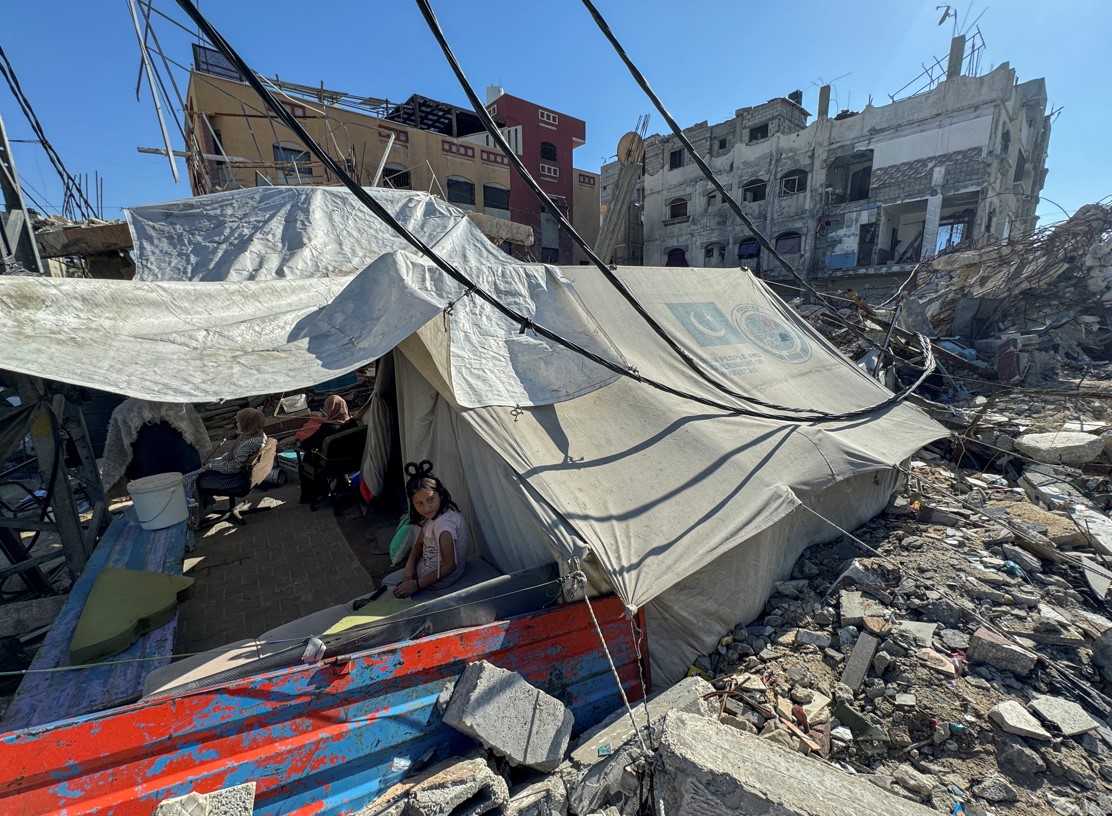
Today marks the 76th anniversary of the Palestinian “Nakba”, which marks the period in 1948 in which at least 750,000 Palestinians were forcibly displaced from their towns and villages and another 15,000 killed by Israeli militias.
History is repeating itself. The Palestinian People are marking the Nakba, “catastrophe” this year in almost identical circumstances of facing a very real threat to their existence in their Homeland at the hands of the same perpetrators almost eight decades ago.
This time the internationally defined illegal Israeli Occupation of Palestine is erasing not only all achievements and developments that have ever taken place in Palestine but also the lives of as many Palestinians as politically possible.
More To Read
- Mombasa faith groups unite in Sh30 million appeal for Gaza humanitarian aid
- Human rights activists demand Kenya take action against Gaza genocide as thousands rally in support of Palestine in Nairobi
- Kenyan Muslim organisations launch Sh5.4 million Udhiyah programme for Gaza amid deepening humanitarian crisis
- Mombasa Phoenix wins Palestine Freedom cup 7-a-side tournament
- Kenyan youth activists in Kamukunji stand in solidarity with Palestine on last Friday of Ramadan
- ICJ grants African Union permission to weigh in on Israel's obligations in occupied Palestinian territories
In 1948, approximately 800,000 Palestinians were forcibly expelled from their homes, becoming refugees overnight. Many were subjected to violence, massacres, and the eradication of their cities, towns, and villages by the newly immigrating Zionist militias in their attempt to replace Palestinians and claim the land as their own, leading to the ethnic cleansing of Palestinians.
As the world commemorates the Nakba, it is imperative to acknowledge that for us Palestinians, the Nakba has never ended. The decades-long struggle for justice and self-determination continues, with the current situation in the Gaza Strip serving as a stark reminder of the ongoing plight of the Palestinian People.
It is indeed mind-boggling that after more than seven decades, Palestinians find themselves facing a new Nakba in the Gaza Strip.
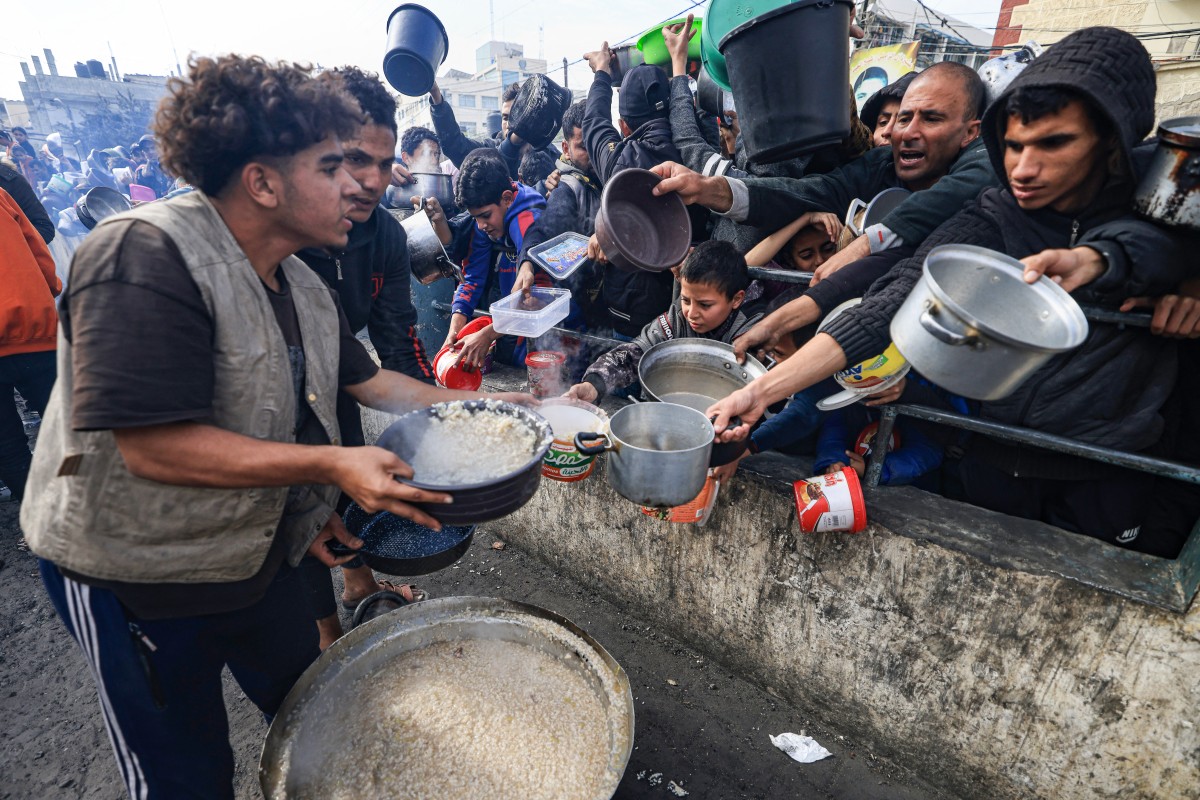 Palestinians collect food at a donation point in a refugee camp in Rafah in the southern Gaza Strip on December 23, 2023. (Photo by Mahmud HAMS / AFP)
Palestinians collect food at a donation point in a refugee camp in Rafah in the southern Gaza Strip on December 23, 2023. (Photo by Mahmud HAMS / AFP)
The relentless bombardment of the Israeli Occupation Forces has so far resulted in the loss of over 35,000 lives, with the majority being innocent women and children, and further displaced 1.9 million Palestinians inside the Gaza Strip, with nowhere safe to go, resulting in an unprecedented humanitarian crisis
The reality of the world's inaction to the suffering of Palestinians is deeply disappointing. How can we, as an international community, allow history to repeat itself in such a horrifying manner?
The principles of justice and human rights demand that we stand in solidarity with the oppressed and hold perpetrators of violence and occupation accountable.
It is essential to recognise that the Palestinian struggle intersects with the broader global fight against colonialism.
Just as Palestinians have endured decades of dispossession and oppression, so too have countless peoples across the world, including in Africa.
The scars of colonialism run deep, and nowhere is this more evident than in the experience of Kenya. The brutal colonisation of Kenya marked by violence, land theft, and systemic oppression, shares striking parallels with the plight of Palestinians.
 A Palestinian woman reacts as she sits amidst the rubble of Gaza's Al-Shifa hospital after the Israeli military withdrew from the complex housing the hospital on April 1, 2024. (Photo: AFP)
A Palestinian woman reacts as she sits amidst the rubble of Gaza's Al-Shifa hospital after the Israeli military withdrew from the complex housing the hospital on April 1, 2024. (Photo: AFP)
Both peoples have suffered the consequences of displacement, and the denial of their basic rights. By acknowledging this widely shared history of suffering and resistance, we can forge stronger solidarity among oppressed peoples and work collectively towards a future rooted in justice, equality, and self-determination for all.
Viable solution
The only viable solution to this conflict lies in granting Palestinians their long-denied statehood and right to self-determination, based on a two-state solution in accordance with international law and relevant United Nations resolutions.
Recently, a number of countries have fulfilled their obligations by recognizing Palestine as a State, reflecting the will of the overwhelming majority of States in the United Nations.
This is consistent with 14 out of 15 votes in the UN Security Council voting for a full Palestinian Membership, a will denied by the unjust use of Veto power by the United States of America.
On a similar note, last week, the international community cast again their vote in recognition of this right, when 143 voted in favour of Palestinian representation rights at the UN in addition to calling on the UN Security Council to endorse Palestine's full membership at the organisation.
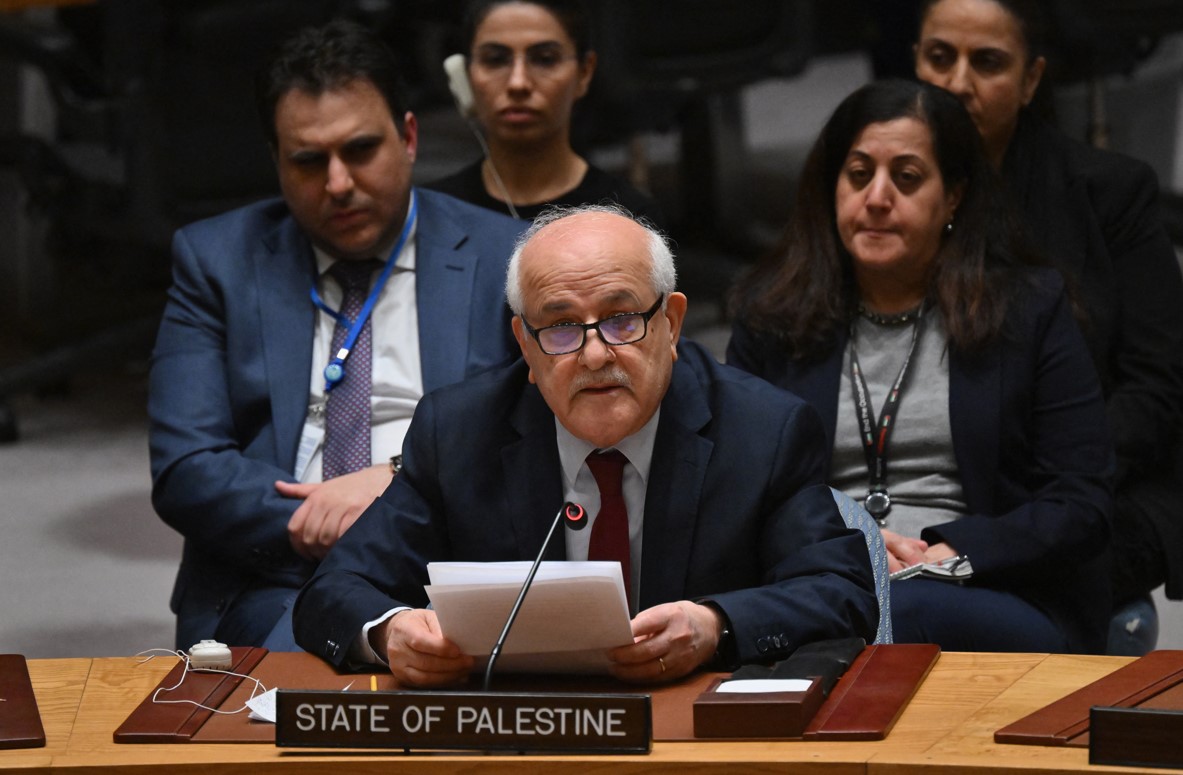 Palestinian Ambassador to the United Nations Riyad Mansour speaks during a UN Security Council meeting at the UN headquarters in New York on March 25, 2024. (Photo: ANGELA WEISS/AFP)
Palestinian Ambassador to the United Nations Riyad Mansour speaks during a UN Security Council meeting at the UN headquarters in New York on March 25, 2024. (Photo: ANGELA WEISS/AFP)
Central to any resolution of the conflict is the importance of accountability. We must confront the atrocities committed against Palestinians, as there is a long list of recorded massacres carried out by Zionist militias since 1948, such as the infamous Deir Yassin massacre in 1948, the Sabra and Shatila massacre in 1982, and the countless massacres that followed to this very day.
Acknowledging, and addressing these brutalities is a prerequisite to move forward and make sure that newer ones are not added to this list.
The world today is different from 1948. With the advent of technology and social media, the atrocities committed against Palestinians in Gaza are being witnessed in real time by people around the globe. The belief shared by Palestinians and numerous countries globally is that genocide is taking place in the Gaza Strip.
Palestinians have never asked for anything but their legitimate rights – the right to live in dignity, free from occupation and oppression. This includes the right of return for Palestinian refugees scattered across the world, longing to reclaim their ancestral homes and lands from which they were forced to flee.
Let us recommit ourselves to the pursuit of justice and peace for the Palestinian people. It is time to heed their cries for freedom and equality and work towards a future where all peoples, regardless of ethnicity or religion, can coexist in peace, security, and harmony. Anything less would be a betrayal of our shared humanity.
The writer Hazem Shabat is the Palestinian Ambassador to Kenya
Top Stories Today

